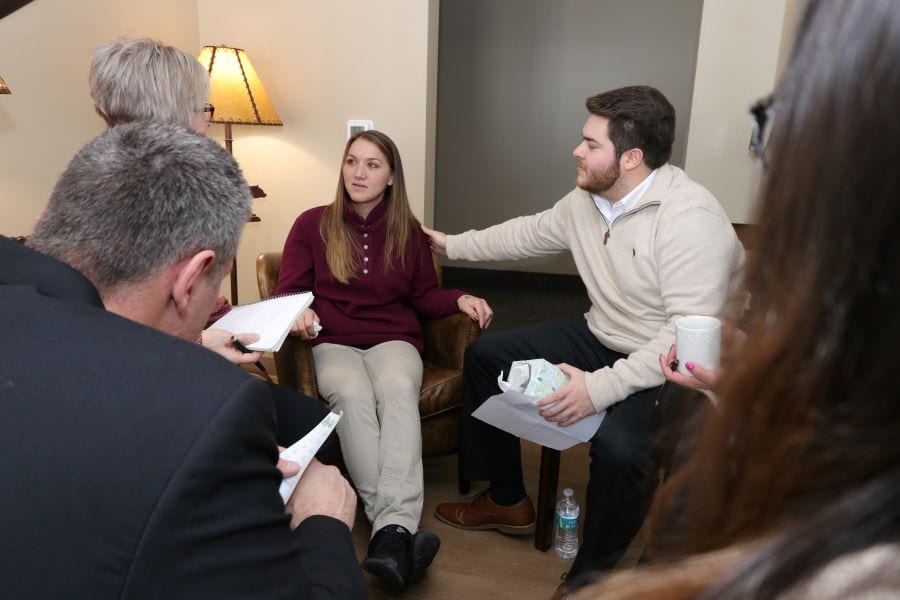6 Common Excuses We Make to Avoid Getting Help

There are some people who are completely unaware of when they are struggling with a serious problem, and then there are others who recognize they have a problem but refuse to seek help. Few places are both possibilities more common than when it comes to dealing with addiction, yet this is one of the most crucial places where outside help is a necessity. While it is extremely difficult for someone to quit using drugs or alcohol on their own, far too often do these individuals refuse help or find an excuse as to why they do not need it.
The reasons for avoiding help can vary widely from person to person. In some cases, it stems from a matter of pride or ego, meanwhile in other situations it is related to financial worries or a lack of resources. Regardless, these are all excuses to avoid a deeper struggle: the fear of facing their problem directly.
At the time, they may not even realize they are making these excuses. For them, it does not even feel like an excuse, but a genuine reason to delay help longer. If you are struggling with addiction and have not received help, it is time to ask yourself if the reasons you are giving are viable or just more excuses. Here are 6 common excuses a person will make to avoid seeking or accepting help from others.
1. I Don’t Have a Problem
One of the greatest barriers to a person’s addiction recovery is denial. This is characterized by an individual’s refusal to acknowledge that their drug use has become a serious problem and is negatively impacting their life and the lives of those around them. As long as denial persists, an addict will be unable to effectively receive treatment, as a key component along the early path to sobriety is to recognize there is a problem and commit to overcoming it.
Denial exists for a number of different reasons and comes in a variety of forms. In many cases, denial forms because of the stigma associated with a drug addiction and an individual’s fear of admitting they have one. They may be afraid of the reactions their family members and friends will have toward them, and hope that by refusing to recognize the problem, it will not exist. To avoid acknowledging it, they will blame their problems on something else, such as other people, items, or just bad luck. For example, a person who is in denial and struggling at work, might claim that their boss is just likes to give them a hard time. In reality, their difficulties at work are based on the fact that they continually arrive intoxicated and unable to perform their duties.
2. I Will Lose My Job
Undergoing treatment for drug addiction is a time-consuming process that in severe cases requires a person to take time off work for inpatient care. This can lead an addict to refuse treatment out of fear that when their treatment has ended, they will have no job to return to. Particularly if their drug abuse has already caused financial troubles, this is a terrifying concept that is reinforced by the fear that having an addiction might hurt their chances of being hired somewhere else. In reality though, addiction will affect their productivity at work and in the long run will likely create a greater risk for being fired.
While some jobs can be exceptions, the Americans with Disabilities Act (ADA) guarantees that an employee cannot be fired or discriminated against because they choose to undergo rehab for addiction recovery. This law also ensures that an employee is allowed to take up to 12 work weeks of time off within a 12-month period without facing any consequences, which is enough time for most inpatient care programs to be completed. Additionally, while accepting addiction help may seem like a risk in the workplace, receiving help benefits both the individual and their employer, as they will have a more productive and reliable employee. As a result, many employers are quite willing to work with an honest and open employee to accommodate their needs during rehab.
3. I Can't Pay My Bills or Afford the Cost of Treatment
Similar to being fired, financial costs can drive a person to refuse help for their addiction. This may be because they cannot afford their home or other necessities, family responsibilities, treatment itself, or all of the above. Fortunately, while the ADA doesn’t promise paid time off for workers undergoing rehab, many employers are willing to provide help in some form to their employees. This can be by helping them get into a rehab program faster and therefore starting sooner, or it may be through an employee assistance program that allows them to get discounted rates or some free services.
Furthermore, most rehab facilities work with various insurance providers to help cover the cost of treatment. In scenarios where health insurance is not accepted, or someone is underinsured, many centers offer scholarship programs to help individuals receive the care they need.
4. My Family and Friends Will Know
Within society, addiction is often regarded as a shameful condition and an addict may feel that they will be stigmatized and disrespected if their friends and family know. This can drive a person to deny their addiction and try to hide it, refusing help in the process. In reality, if the individual has reached the later stages of addiction, their friends and family probably already suspect or even know that they are abusing drugs, so trying to hide it serves no practical purpose. If those acquaintances were going to turn on the individual because of their condition, they would have already done so.
5. I Can Get Sober on My Own
Pride is a powerful influencer when it comes to refusing help for addiction treatment. Many people who should be receiving help choose not to because they believe they can overcome their addiction without it. An individual may also insist that they do not need outside help in an attempt to avoid drawing more attention to their condition. This can be so they may continue using or because they truly believe they will eventually overcome it themselves. However, while it is possible for a person to get sober on their own and stay sober, it is an incredibly difficult and potentially dangerous task to attempt. Particularly if the person is addicted to a highly potent substance like alcohol or benzodiazepines, attempting to quit without professional assistance can cause serious harm or even death.
6. I am not Like "Those" People
Thanks to the negativity surrounding addiction and traditional stereotypes about the types of people who struggle with substance abuse, there is a permanent stigma about the kinds of individuals become addicted and need to receive treatment. This can imply many different things, such as the person is incapable of taking care of themselves, weak willed, irresponsible, or foolish. In reality though, addiction is far more complicated then these stereotypes and every person who takes an addictive drug is at risk regardless of their background, ethnicity, religion, and social class. Addictive drugs do not discriminate between people and for this reason there is no “those” people. Instead, the individual who makes this claim, is simply making an unacceptable excuse to avoid receiving help.
Stop Making Excuses and Get Help Today
All of these responses may seem like they are justifiable reasons to avoid receiving help when you are struggling with a substance use disorder, but the truth is that neglecting treatment for any reason does more harm than good. In a short span of time, addiction can devastate a person’s life and the lives of those around them, causing their worst fears to become reality.
If you or someone you love is struggling with alcoholism or addiction, don’t make excuses. We know admitting you have a problem and asking for help can be difficult, but once you reach out, you will realize you had nothing to fear. At Brookdale Premier Addiction Recovery, many of our staff have experienced what you are feeling, and understand being fearful of change. However, through the help of others, they have found freedom from addiction.
It is our goal to provide you with the same guidance, support, and understanding that was so freely given to many of us, so you can overcome your addiction and experience a life…recovered. Please do not wait any longer. Give us a call today at (855) 575-1292 and get the help you deserve.


[…] 6 Common Excuses We Make to Avoid Getting Help – Brookdale Premier Addiction Recovery | Call 8… […]